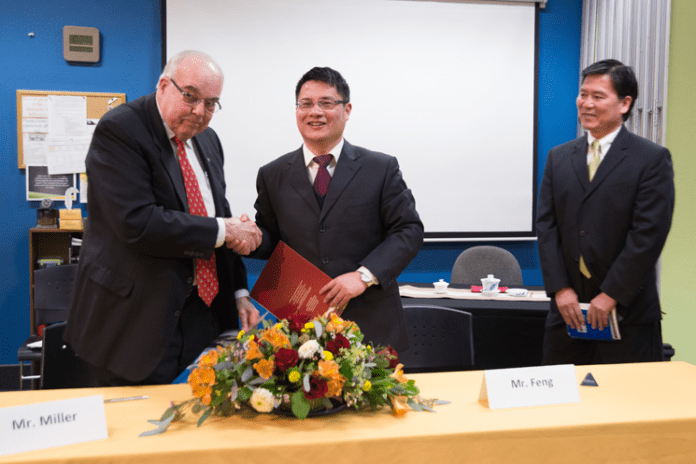What does a flight attendant, a chef, a train conductor and a wind turbine technician all have in common? If they studied in this region, there’s a good chance they graduated from the International Air and Hospitality Academy (IAHA) in Vancouver.
“If you’ve traveled in the last 35 years, it’s likely you’ve met one of our students,” commented Arch Miller, president and founder of IAHA.
The academy employs approximately 70 people in Vancouver and has buildings at three different locations around the city, offering training to people eager to learn a trade and enter into a high paying field. Several thousand students apply to the school each year, said Miller, and around 950 are accepted. Classes take between five and nine months depending on the industry, and tuition can range between $14,000-20,000.
Because it offers intensely diverse career specializations, IAHA suffers from having a great many names. According to Colleen Piller, vice president and director of marketing, the academy is “gearing up” for a rebranding effort.
Currently, the branches of the school include the International Air Academy; International Air and Hospitality Academy; Northwest Culinary Institute; Northwest Renewable Energy Institute; as well as the Northwest Railroad Institute. Though the unification of all these branches is projected for this year, Piller made it clear that they were not ready to make a final decision at this time.
“Our students can get a job as a flight attendant, a chef, an airline operator, a wind turbine technician, in hotel and resultant event management, or wedding and event planning, just to name a few,” said Piller.
As with any accredited university, the true success of the IAHA lies in getting people jobs after they graduate. The school must find jobs for a minimum of 70 percent of their students within 90 days of graduation to meet Department of Education requirements, but Miller said that for IAHA that is not a problem.
“We’re way above that [requirement],” he said. “It’s just a matter of working hard and finding the jobs out there.”
IAHA’s success is reflected not just in job placement, but also business growth. In the first months of 2015 alone, the school has hired half a dozen people in marketing, sales and instructional positions.
“We’re also launching our catering program, available to businesses in Clark County on March 1,” said Piller. “Students will get hands on practice and our chefs will be in charge of it.”
This expansion into the world of catering is just the most recent addition in a long line of adaptations the school has made in its 35 years. For example, in 2013 the school created the Northwest Railroad Institute after industry leaders raised major concerns about finding the next generation of railroad employees.
“We determined a need and decided to fill it,” Miller said.
Miller made it clear that the school isn’t planning a larger expansion into another industry anytime soon, but said he is always looking for opportunities.
“If we had an opportunity to expand that came up we would jump at it in a minute, but we don’t know of any right now,” he said.
When asked the biggest challenge for IAHA, Miller, Piller and Ed Bedecarrax, vice president and director of education, all replied “Congress.”
“Congress focuses on issues that are important at the time, and in education, student loans and repayment and debt is sort of a hot topic. Those are all areas that are ultimately fodder for regulations,” he said.
“I don’t see any reasons why our growth couldn’t continue providing no huge rulings that come out of Congress,” Miller added. “You never know when Congress is going to do something nasty to you.”
Editor’s note: The International Air and Hospitality Academy is a member of the Vancouver Business Journal’s Strategic Partners Program. To learn more about the program, contact Irene Pettengill at 360.448.6013.




